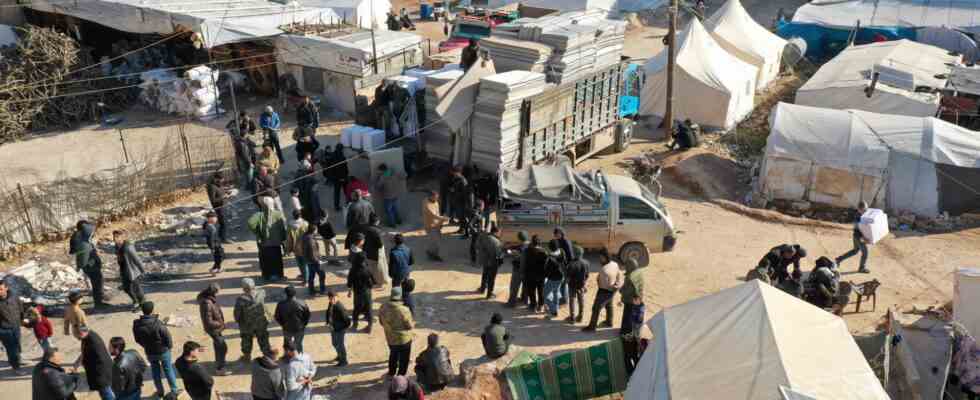Status: 03/13/2023 5:28 p.m
Syria’s President Assad “completely failed” in providing aid after the earthquake, according to a UN report. Vital support reached many regions of the country too late. The UN has also criticized the ongoing violence.
A United Nations (UN) commission of inquiry has sharply criticized the Syrian regime’s response to the earthquakes in February. President Bashar al-Assad’s government has failed comprehensively in providing timely life-saving aid to the victims, said Paulo Pinheiro, chairman of the commission.
Immediately after the earthquake in early February in the Turkish-Syrian border area, the Syrian regime needed a whole week to approve cross-border aid from Turkey, criticized the commission of inquiry, which works on behalf of the UN Human Rights Council.
Both the government and resistance groups have obstructed cross-border aid for the affected communities. But domestic help was often slow to come. The extremist group Hayat Tahrir al Sham in north-west Syria has refused help from Damascus.
Also criticism of the international community
According to the UN report, the Syrians felt abandoned and neglected by those who were supposed to protect them in their time of need. The international community, the Syrian government and other parties to the conflict had failed.
According to the UN, the fact that Aleppo airport was temporarily shut down after an Israeli attack a week ago was “quite critical” for humanitarian aid. “Nor does this type of action do anything to protect the well-being and interests of civilians following this horrific event,” said UN expert Lynn Welchman.
There are also allegations that parties to the conflict have deliberately obstructed humanitarian aid to the affected communities, said Commissioner Hanny Megally.
UN call for end to violence
Despite the devastating earthquakes and massive destruction, fighting is back in many regions. In its report, the Commission calls for an end to all violence. “We are now investigating new attacks – even in the areas devastated by the earthquakes,” Pinheiro said. He also criticized Israeli airstrikes on Syria.
Israel has repeatedly bombed targets in neighboring Syria to prevent Iran from expanding its military influence there with the help of allied militias. Iran is a key ally of the Syrian government.
Bombing other parties to the conflict isn’t helping either, Welchman said. In its fight against Kurdish militias, Turkey had also attacked the earthquake-affected regions in north-west Syria.
Firing Squad Reports
The UN Commission also continues to examine arbitrary detentions, torture and kidnappings by the government and militias. The experts investigated reports that the Hayat Tahrir al Sham militia used firing squads to execute people.
Even before the February 6 earthquake, more than 15 million Syrians were dependent on humanitarian aid – more than at any other time since the conflict began in mid-March 2011, which developed into a civil war.
Northwest Syria – like some other areas – is controlled by Assad opponents. The commission of inquiry works on behalf of the UN Human Rights Council.

